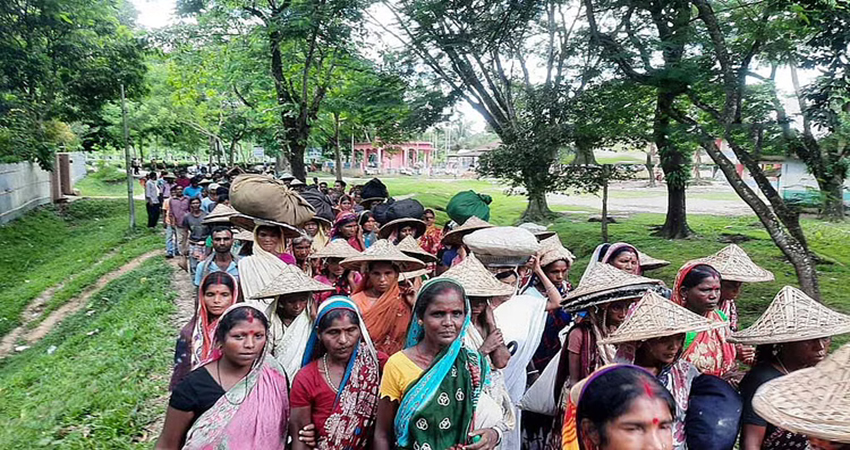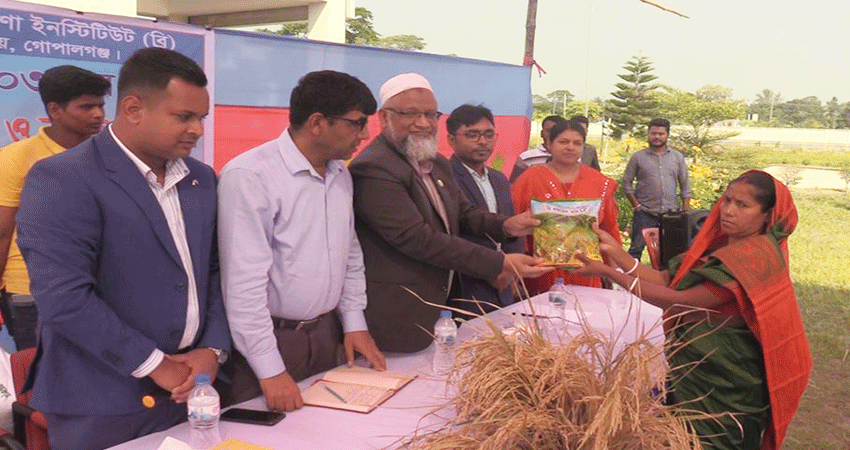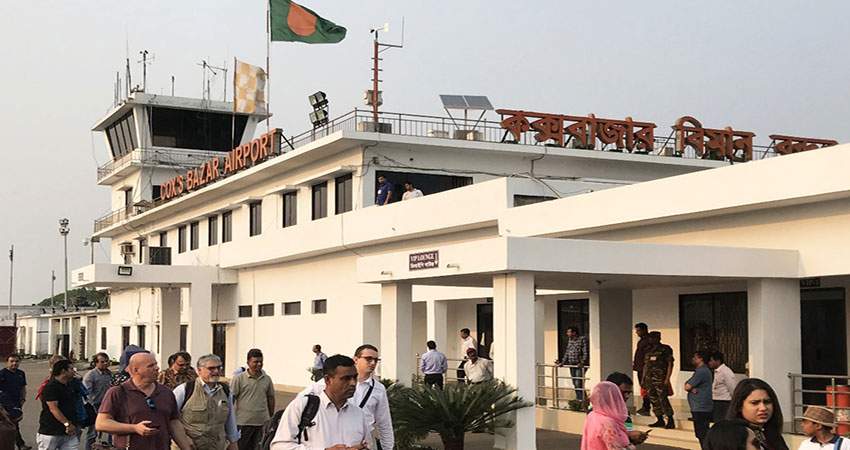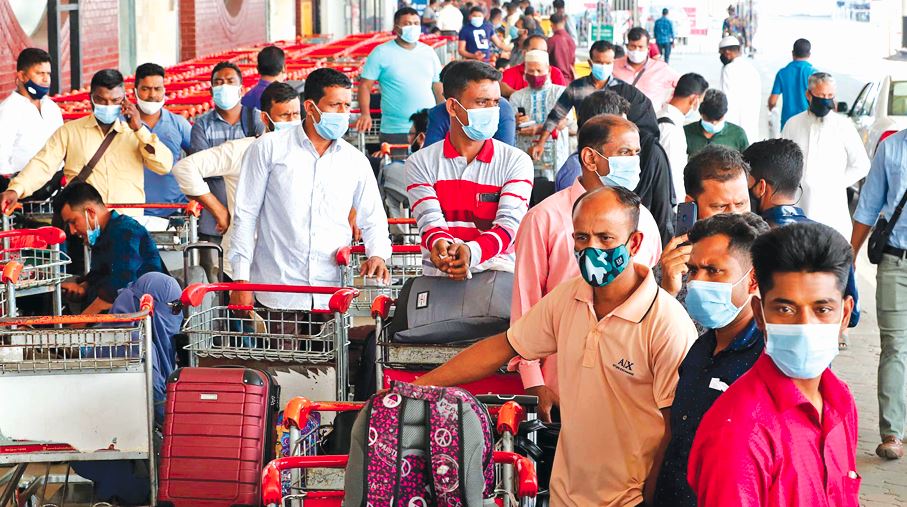Saraswati Bauri has been working at Lalchand Tea Estate in Habiganj’s Chunarughat for three years. He took the job after her father died three years ago. Now the breadwinner for the family of five, in her late 20s, gets Tk 120 as daily wage.
“How am I supposed to support my family in this market? I need to feed my two children and elderly mother. I can’t pay for the expenses with this Tk 120 when prices are rising,” she said, clearly conveying her frustration.
Saraswati has to pay for her 7-year-old daughter Trisha Bauri’s education at school. She cannot even think about taking her children to healthcare facilities when they fall ill.
Jyotsna Painka, a worker of Khaichhara Tea Estate in Sreemangal’s Bharaura, said they eat bread in the morning and afternoon, and rice at night. With rice, they eat lentils, potatoes or some other vegetables.
She buys small fries or dried fish after getting her wage on Wednesday. “We can’t think of having anything beyond these.”
Jyotsna has forgotten when was the last time they ate meat.
Munmun Painka of Bhurburia Tea Estate said they buy meat once a year, during Puja when the owners pay some bonuses.
Now tens of thousands of tea plantation workers have launched an indefinite strike demanding a rise in their daily wage to Tk 300.
The owners, however, claim that a worker is paid Tk 300 daily, taking into account that they get 2 kg flour at Tk 4 per week, free tea, and land to live on.
“You should also consider that their wage has been raised several times in the past decade while the tea price has remained unchanged,” claimed Golam Mohammad Shibli, Sylhet unit chairman of owners’ organisation, Bangladesh Tea Association.
Pankaj Kanda, a leader of the tea workers in Sreemangal, said: “What’s the price of cooking oil, rice and lentil now? And we get Tk 120 cash, excluding housing, education and sanitation.
“Is it possible to bear the cost of running a family of four to seven? Can you do it? No one can. This is why we’ve launched the agitation.”
They started the protests after the owners offered a mere Tk 14 hike in daily wage, said Bijoy Hajra, another leader of tea workers in Sreemangal. “A Tk 134 daily wage is in no way a standard pay. A family can’t survive with this wage.”
The situation is worse for the temporary workers who are paid less wage than the permanent ones. The temporary workers also do not get ration and festival allowance.
Mohammad Nahidul Islam, deputy director at the Department of Labour in Sreemangal, said the law states the owners and the workers will formally inform the department if they cannot agree on a deal on pay. The department will take steps within 30 working days to find a solution, but no side has written to the authorities this time.
“We’ve informed the high-ups ourselves and issued some instructions to the workers’ leaders,” he said.
Is Tk 120 a day enough for a family to survive?



















